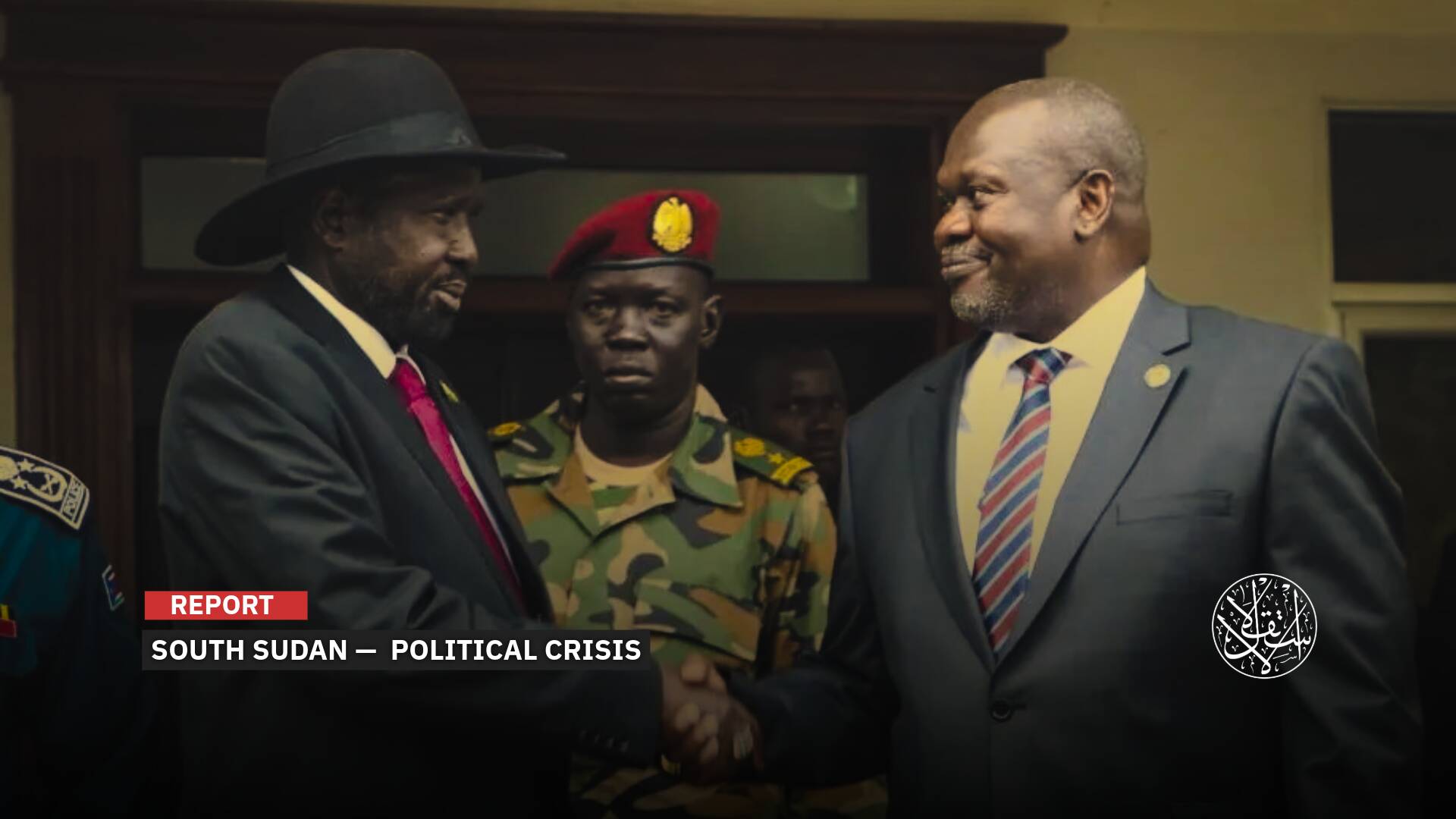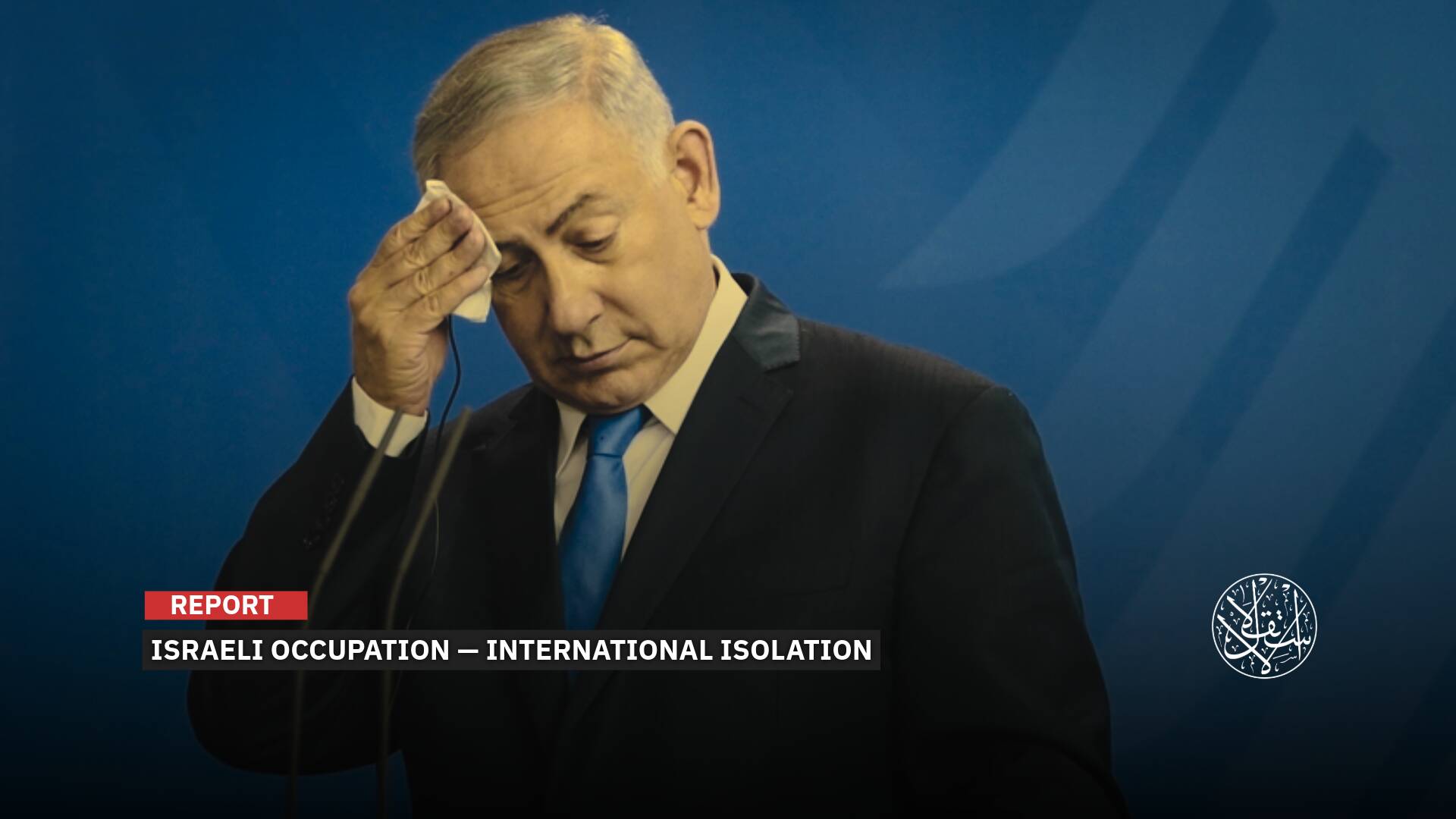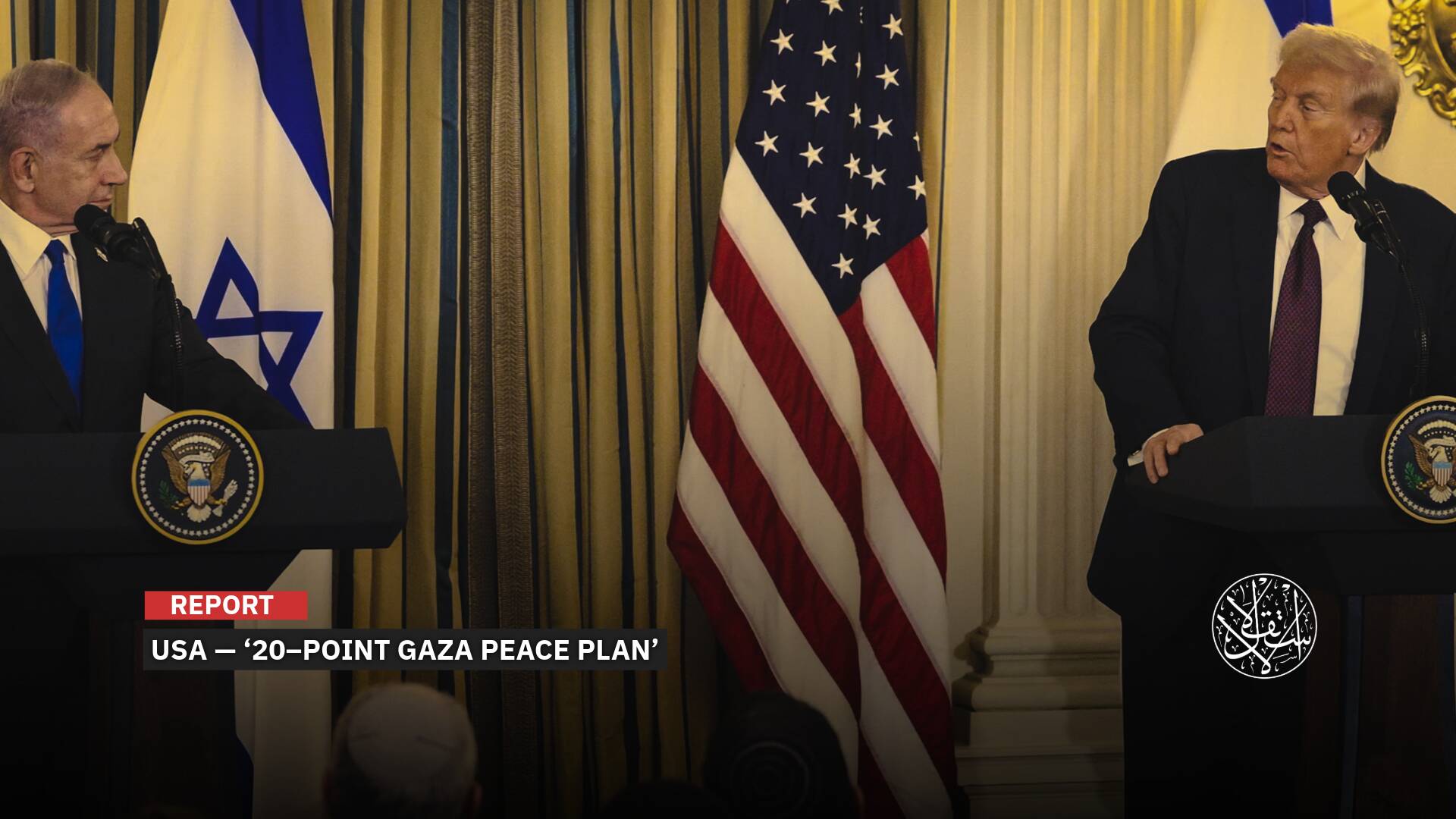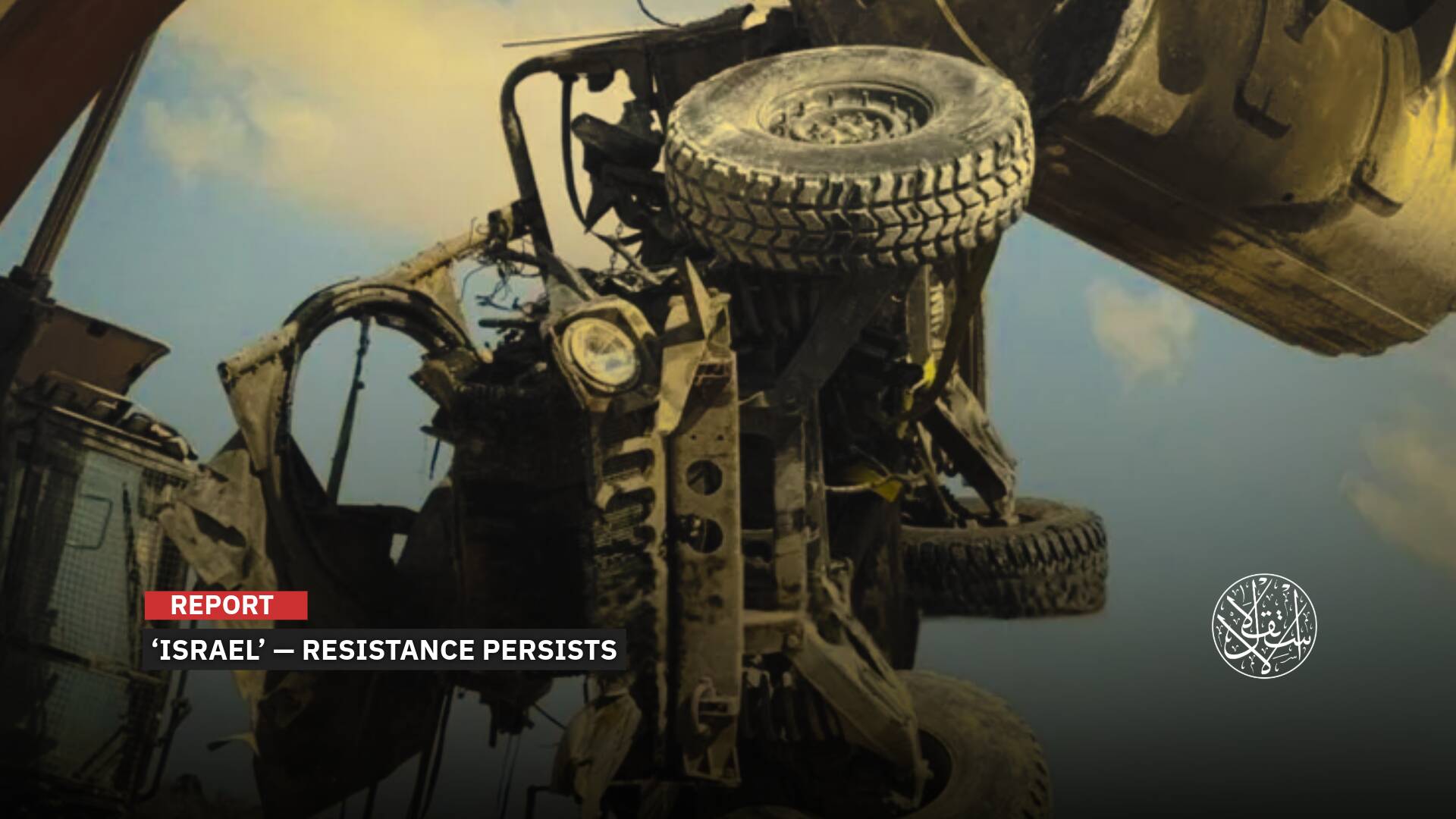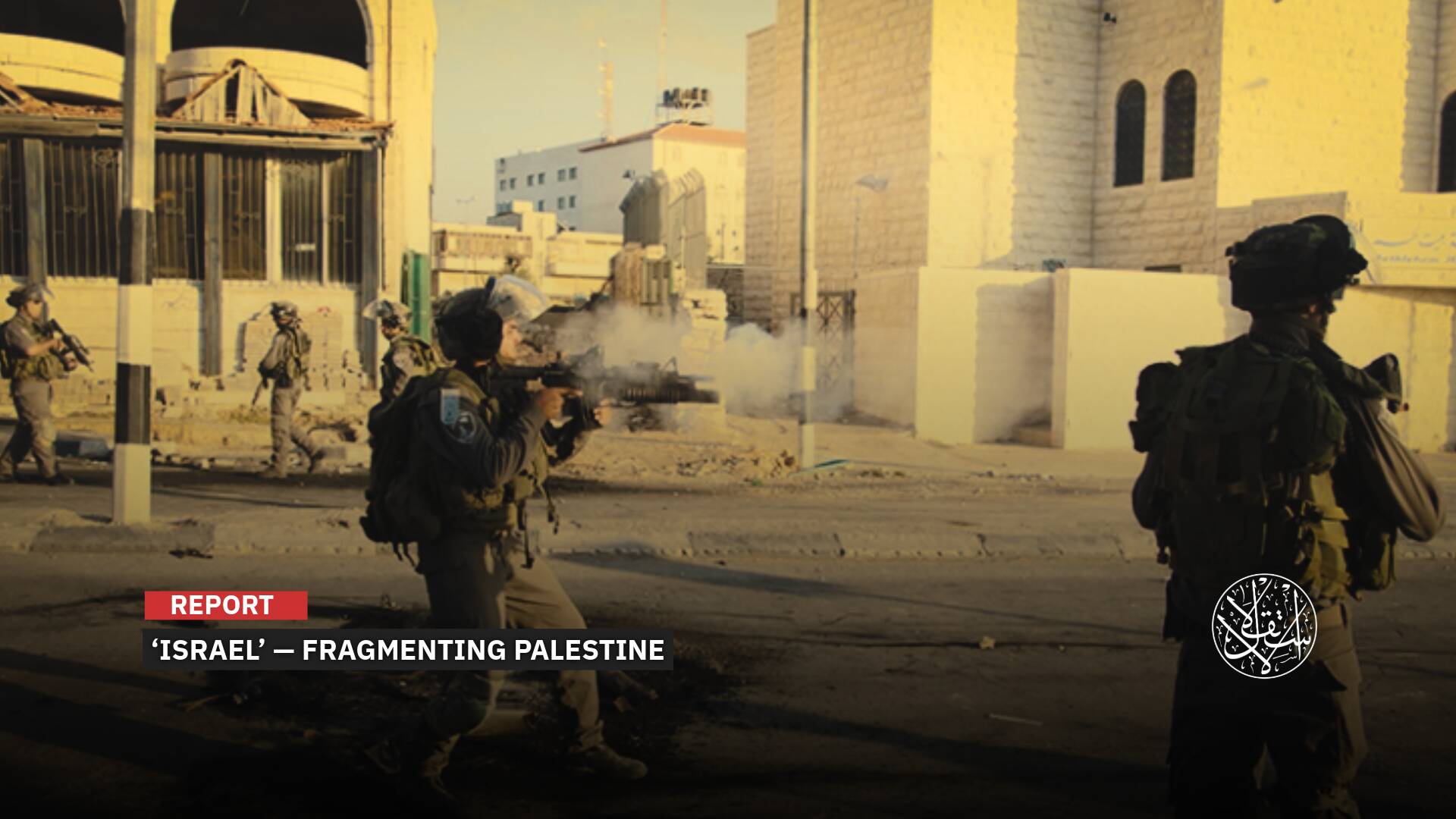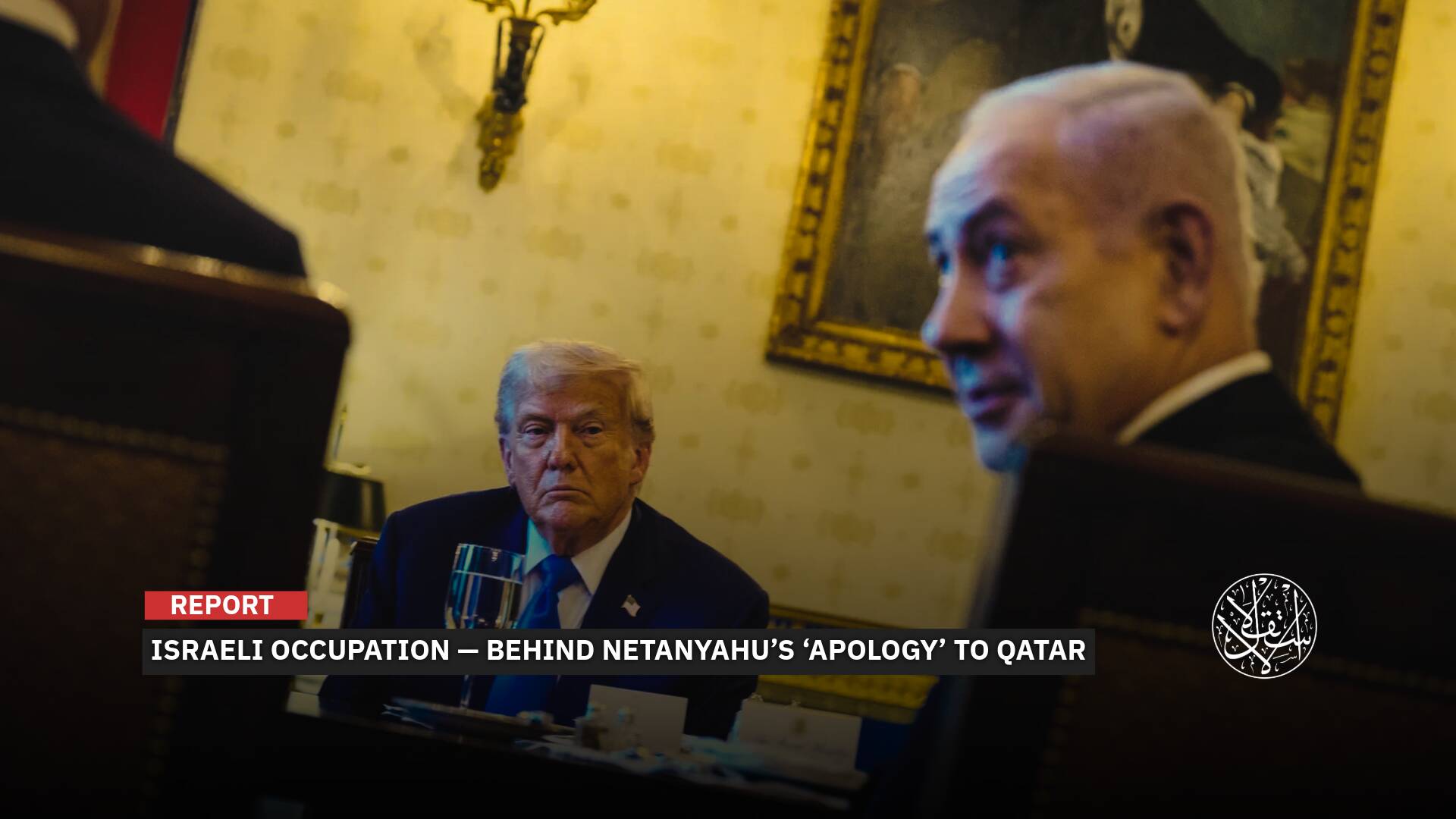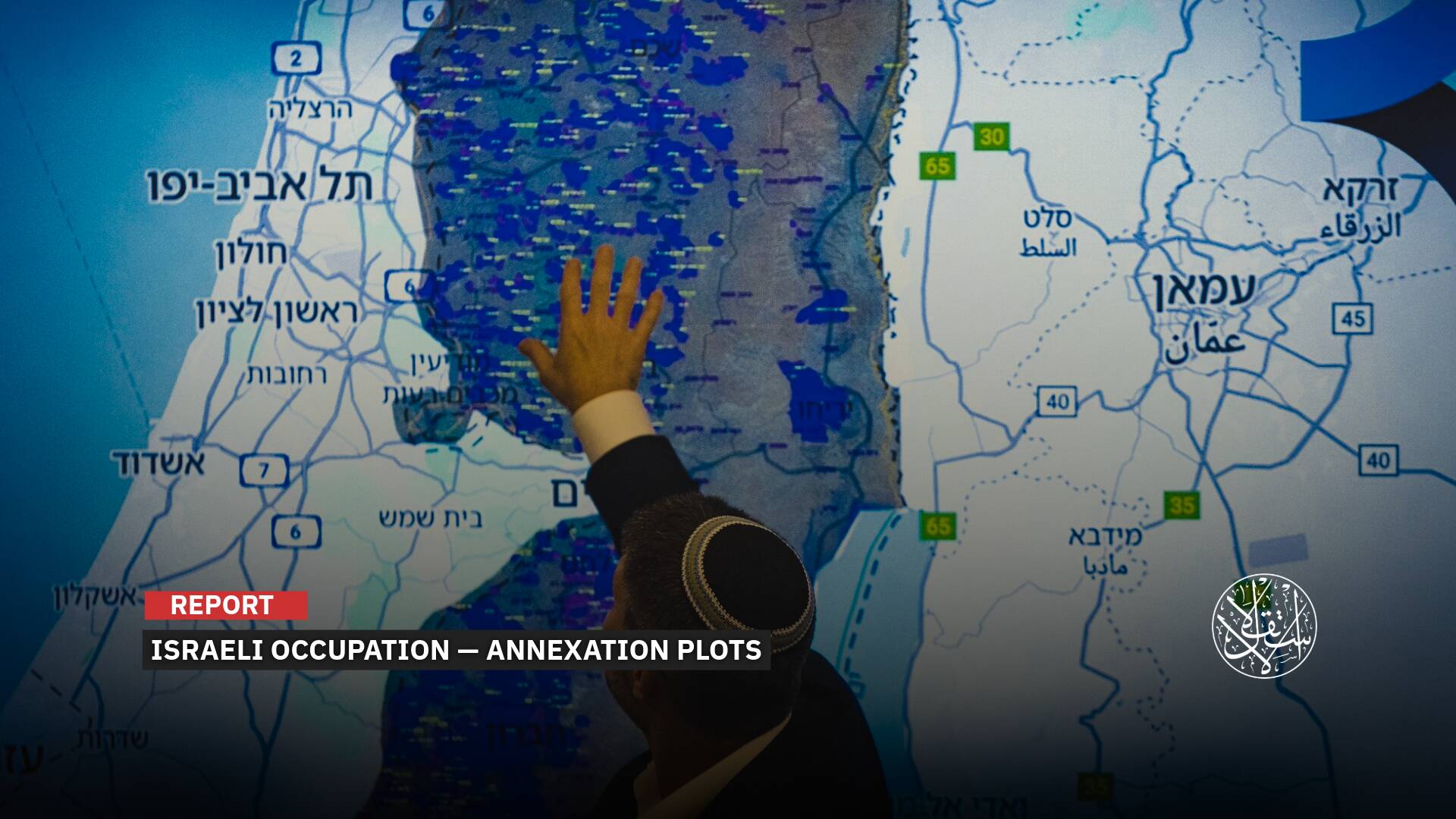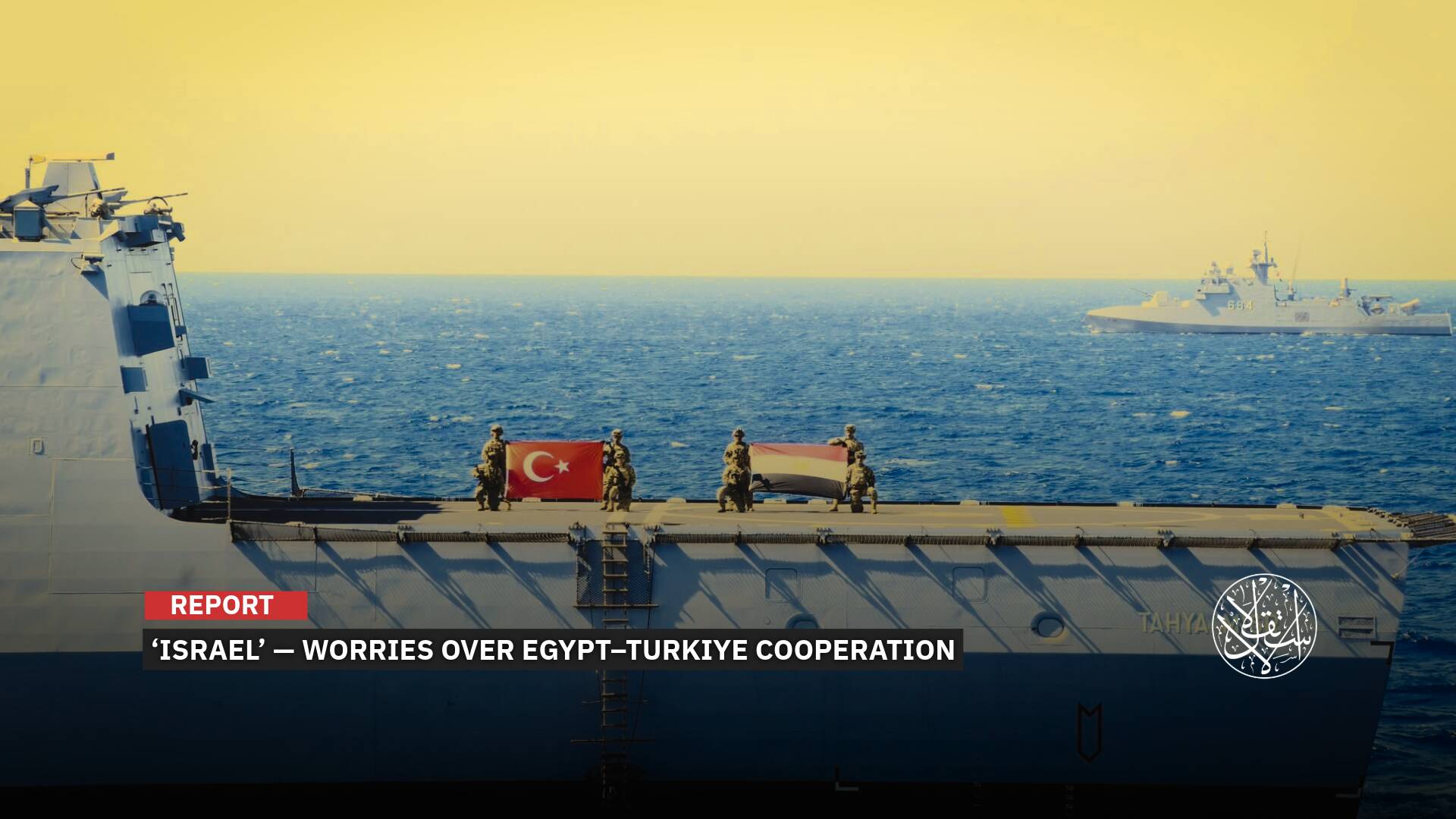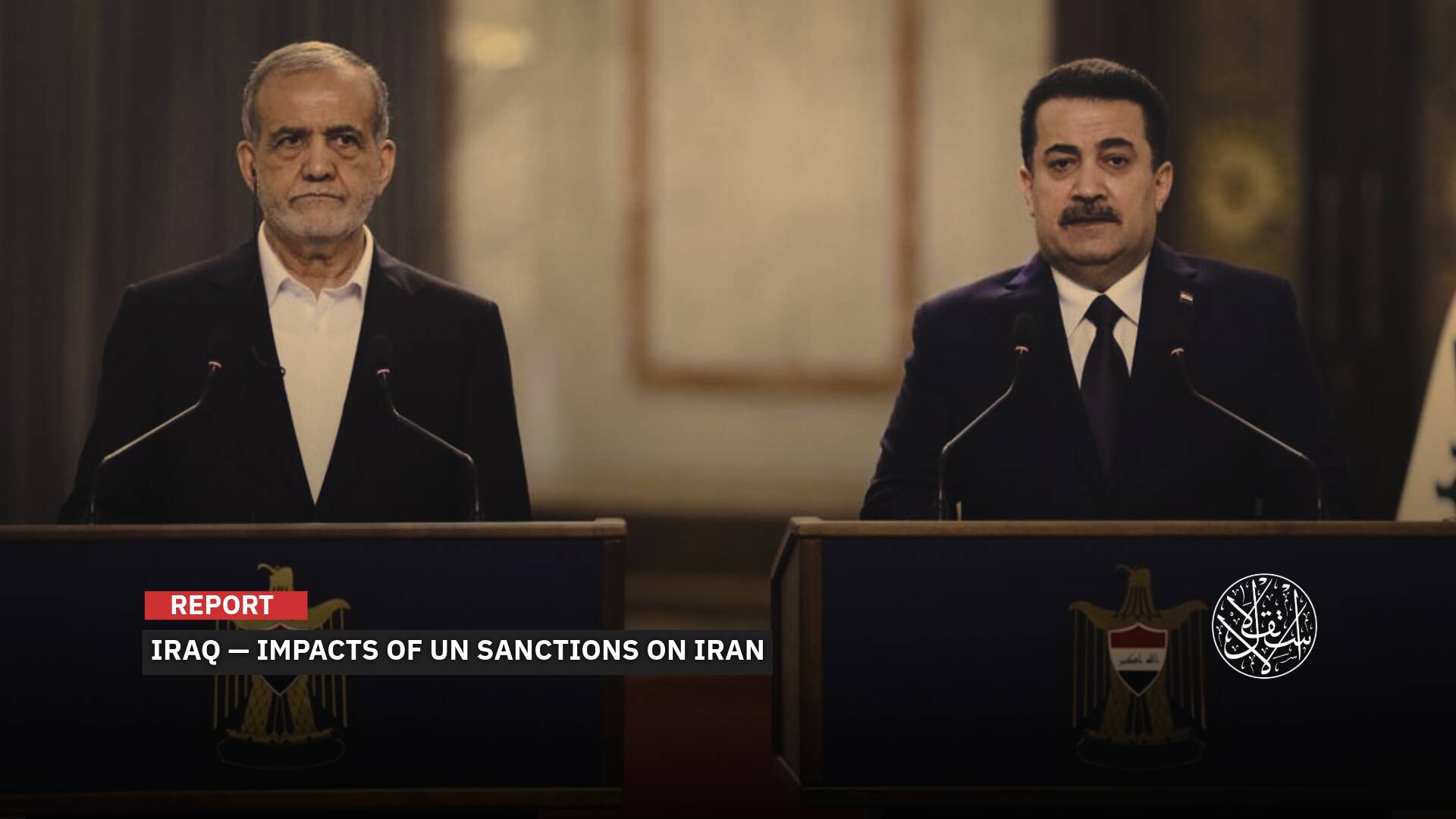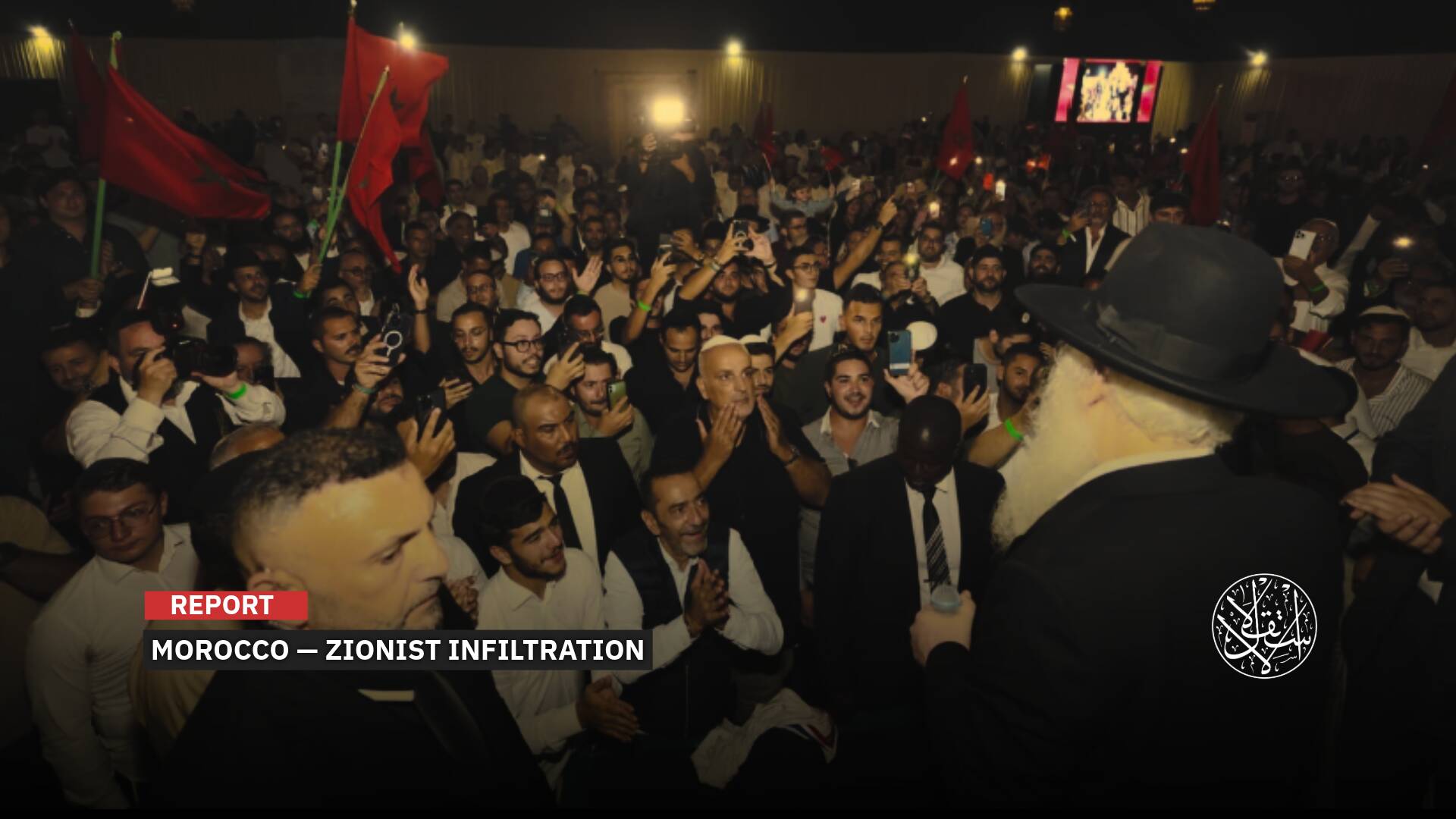Iran–'Israel' Conflict: A Tactical Revenge or a Prelude to a Full-Blown Regional War?

“Yoav Gallant, minister of the Israeli army, said that the confrontation with Iran was not over yet.”
Iran recently launched an attack against "Israel" with hundreds of drones and missiles from its territory, but there have been no reports of casualties in "Israel" as a result of the first direct Iranian attack on it.
The Iranian attack lasted 5 hours, and Tehran called it "The True Promise," while the Chief of the General Staff of the Iranian Army, Mohammad Bagheri, said that the military operation was only a warning.
The Israeli army reported, in a statement, that Iran launched more than 170 drones, 120 ballistic missiles, and 30 cruise missiles toward "Israel," in addition to launching more than 55 Katyusha missiles from Lebanon during the past hours, announcing that 99% of them were intercepted by the air defense system.
Many countries issued statements denouncing the Iranian attack on "Israel," while other countries called for an end to the escalation for fear of the Middle East region sliding into a full-blown regional war.
CNN believed that the attack on "Israel" from Iranian territory amounts to the scenario that U.S. President Joe Biden has actively sought to avoid since the beginning of the current conflict in the Middle East due to the war in the Gaza Strip that has been ongoing for 6 months.
It is expected that these retaliatory operations will escalate the risk of a large-scale regional conflict, which could directly drag the United States and other countries into it.
CNN considered that these actions put Biden, who is preparing for presidential elections next November, in a weak position due to his pledge to provide strong support for "Israel," but at the same time, he is trying to prevent the outbreak of a new conflict in the region in which the United States may participate.
After the recent Iranian attack, U.S. officials admitted that they had entered uncharted territory, while an American official said that the Biden administration saw the Iranian attacks on "Israel" as disproportionate to the Israeli strikes in Damascus, which prompted Tehran to retaliate.
Iran's Attack on 'Israel'
Iranian state television announced late on April 13 that Iran's Islamic Revolutionary Guard Corps (IRGC) launched a massive attack with drones and missiles against "Israel," in response to the targeting of its embassy in Syria, killing 16 people, including senior Iranian military advisors, such as Brigadier General Mohammad Reza Zahedi and his deputy, Mohammad Hadi Haji-Rahimi.
Brig-Gen Zahedi is the most prominent Iranian military leader to be targeted since Major General Qasem Soleimani, commander of the Quds Force, was assassinated in a U.S. military raid in Baghdad in January 2020.
Over the past years, "Israel" has launched hundreds of air strikes in Syria, mainly targeting Iranian targets and others by Lebanese Hezbollah, including warehouses and shipments of weapons and ammunition, as well as sites of Syrian regime forces.
"Israel" rarely confirms the implementation of these strikes, but it reiterates that it will confront what it describes as Tehran's attempts to establish its military presence in Syria.
The strikes intensified amid the ongoing war launched by the Israeli Occupation on the Gaza Strip since October 7, while the Iranian embassy is considered the most prominent Iranian target to be targeted in Syria during the recent conflict.
Military experts described the recent and unprecedented Iranian attack as the largest in the world in terms of the number of drones used in it, which was estimated at more than 100 drones, amid warnings from the Hebrew and global media of a possible new escalation by "Israel."
Following its attack on "Israel," Iran said that the matter can be deemed concluded, warning that if the Israeli regime made another mistake, Tehran's response would be much more severe, while the Iranian Revolutionary Guard said that any threat issued by any country will lead to a proportionate and reciprocal response.
Iran's Permanent Mission to the United Nations stated in a statement that the military action was conducted on the strength of Article 51 of the UN Charter pertaining to legitimate defense.
On his part, an Israeli official said that the War Cabinet meeting ended without a decision on how to respond to the Iranian attack, but he confirmed Tel Aviv's determination to respond, but the time and scope have not yet been determined, according to CNN.
In turn, Yoav Gallant, minister of the Israeli army, said that the confrontation with Iran was not over yet.
In the same context, NBC NEWS quoted an Israeli official as saying that the War Cabinet asked the Israeli army to provide additional options on responding to the Iranian attack.
The official explained that this will take into account whether "Israel" needs to respond immediately or can wait and the extent to which any escalation against Iran will affect Israeli operations in the Gaza Strip.
NBC NEWS quoted American officials as saying that "the Biden administration is concerned that Israel will respond quickly to the Iranian attacks, without thinking about the potential catastrophic repercussions."
American concerns stem from the Israeli approach in its war on Gaza, as well as the attack it launched on the Iranian embassy in Damascus.
American officials said that Biden privately expressed concern that Netanyahu was trying to drag the United States deeper into a broader conflict.
They also told CNN that Defense Secretary Lloyd Austin asked his Israeli counterpart, Yoav Gallant, to inform the U.S. leadership of any possible Israeli response to the attack launched by Iran on "Israel."
NBC NEWS reported that senior leaders at the Pentagon privately expressed their frustration with the Israeli decision to strike the Iranian embassy in Syria in early April, pointing out that Israeli leaders did not think about the timing of the attack and its catastrophic repercussions, including how it would impact negotiations on the release of hostages held by Hamas.
A senior American official indicated that the United States is now dealing with a possible direct war between two countries, and this is a major expansion so far.

An Unprecedented Escalation
In the context of international positions, U.S. President Joe Biden announced that U.S. forces helped shoot down almost all the drones and missiles that Iran launched at "Israel."
He pointed out that he assured Israeli Prime Minister Benjamin Netanyahu of America's strict commitment to the security of "Israel," describing the recent Iranian attack as brazen.
The European Union condemned the Iranian attack on "Israel," as E.U. foreign affairs chief Josep Borrell said, "The unacceptable Iranian attack on Israel is an unprecedented escalation and a serious threat to regional security."
Meanwhile, European Council President Charles Michel said that everything must be done to prevent further regional escalation and avoid more bloodshed.
On his part, British Prime Minister Rishi Sunak said, "I condemn in the strongest terms the Iranian regime's reckless attack on Israel," adding that Iran has shown once again that it intends to sow chaos in its backyard.
German Chancellor Olaf Scholz said that the Iranian attack on "Israel" is unjustified and irresponsible, indicating that Tehran risks further escalation in the region.
French President Emmanuel Macron also condemned in the strongest terms the unprecedented attack launched by Iran against "Israel," calling at the same time for restraint for fear of a greater regional escalation.
The Saudi Ministry of Foreign Affairs expressed its deep concern over the developments of the military escalation in the region, calling on all parties to exercise the utmost restraint and spare the region and its people from the dangers of war.
On its part, Qatar urged the international community to take urgent action to defuse tension and reduce escalation in the region.
In Latin America, the government of Venezuelan President Nicolas Maduro said it was following troubling developments in the Middle East but did not condemn the Iranian attack on "Israel."

Regional War
Despite the calls made by Israeli officials and ministers to respond forcefully to the Iranian attack on "Israel," expectations do not indicate the possibility of this being implemented.
According to what decision makers in "Tel Aviv" are saying behind the scenes, response options will remain limited in a way that does not lead to igniting the region and directing it into a regional war.
On April 14, Yedioth Ahronoth newspaper reported that it had learned from senior sources that the Israeli response to the unprecedented Iranian attack was not expected to include a military move in Iran itself but rather moves similar to those that had previously been attributed to "Israel" in the past.
It indicated that American pressure is clear on "Israel" to prevent the region from being dragged into a regional war.
Israeli officials called for a strong attack on Iran. The far-right Minister of National Security, Itamar Ben Gvir, said that what is required is to carry out a crushing attack on Iran.

In turn, military expert Major General Omar Melhem said in a statement to Al-Estiklal that there are several scenarios for the Israeli response to the recent Iranian strikes.
He pointed out that one of the scenarios is for "Israel" to respond in the same way as Iran so that missile attacks are carried out that can reach Tehran and do not lead to major losses.
The second scenario is for the response to be non-military, such as cyberattacks, indicating a third scenario, which involves carrying out limited assassinations.
The most dangerous scenario, according to Major General Melhem, is for Netanyahu to ignore all global calls to avoid escalation and carry out a broad and powerful attack against Iran that will ignite the region.
Sources
- Iran launches barrage of strikes toward Israel
- Biden told Bibi U.S. won't support an Israeli counterattack on Iran
- As Iran attacks Israel, Biden confronts an escalating Middle East crisis he had hoped to avoid
- Iranian barrage of missiles and drones causes little damage, Israel says
- Israel Weighs Response After Iranian Attack Does Little Damage
- Iran attacks Israel, risking a full-blown regional war


